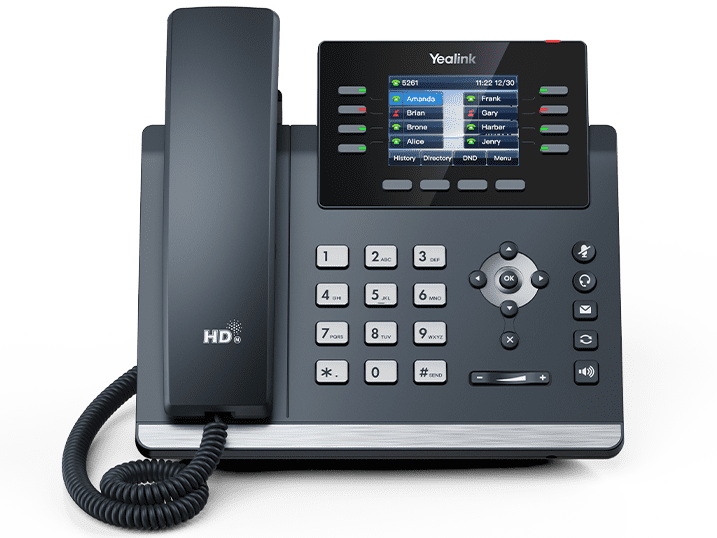
For decades, Plain Old Telephone Service (POTS) lines were the backbone of business communication.
They delivered reliable analog voice connections over copper wires and powered everything from office desk phones to fax machines, alarms, and elevators. But the telecommunications landscape has changed dramatically, and the era of POTS is coming to a close.
Across the country, major carriers like AT&T and Verizon are actively phasing out POTS lines, raising prices on remaining analog customers, and encouraging a transition to newer technologies. In fact, many providers plan to complete the shift by 2027. For businesses in Ocean County, Monmouth County, and throughout New Jersey, this change is already happening.
So what does the end of POTS mean for your business? Let’s break it down.
Why POTS Lines Are Disappearing
Maintaining copper-based telephone infrastructure is expensive and outdated. Carriers no longer see it as viable to support aging equipment, especially when fewer technicians are trained to service it. Instead, providers are investing in digital and wireless solutions that deliver better quality, more features, and lower operating costs.
The Federal Communications Commission (FCC) recognized this shift in its 2019 order (FCC 19-72A1), which gave carriers the green light to retire POTS lines without requiring them to provide universal replacements. Since then, providers have been accelerating the transition.
For many customers still relying on POTS, this means higher monthly bills, limited support, and declining service quality. Static, crosstalk, and dropped connections are all signs of copper infrastructure degrading with no real fix in sight.
What This Means for Businesses
If your business still uses analog phone lines, now is the time to plan your transition. Waiting until your provider forces a change could lead to service disruptions, unexpected costs, or even the loss of a critical business number.
For many companies, the biggest concern is keeping their existing phone number. Fortunately, alternatives like VoIP and cloud phone systems make it simple to port numbers over, ensuring continuity for your customers and vendors.
It’s also important to note that not every POTS use case requires the same replacement. Voice lines, fax machines, alarm systems, and elevators each have different needs, and not all alternatives are created equal.
Alternatives to POTS
The good news is that businesses today have better options than ever before. Here are the most common and effective replacements:
VoIP (Voice over Internet Protocol)
VoIP phone systems run over your internet connection rather than copper lines. This solution offers the most flexibility and is ideal for businesses looking for a modern replacement. With VoIP, you get:
- Unlimited U.S. calling
- Advanced features like call forwarding, voicemail-to-email, auto attendants, and call queues
- Mobile and desktop apps for hybrid work environments
- Cost savings compared to POTS, with significantly lower taxes and fees

For businesses in New Jersey, VoIP is now the go-to choice. Providers like AmeriTel design systems tailored to your needs, install the hardware, train your staff, and support you long after setup.
Cloud-Based Phone Systems
Cloud solutions expand on VoIP by offering fully hosted services managed by your provider. This means no need to maintain servers or complex equipment in your office. Cloud systems are highly scalable, making them a strong fit for multi-location businesses or companies planning to grow.
Cellular-Based Solutions
Cellular lines are often used as replacements for alarms, elevators, and other applications that don’t require a dedicated phone number. Because alarms don’t need caller ID recognition like voice or fax lines, cellular is a reliable and cost-effective substitute.
Benefits of Transitioning Away from POTS
Switching to VoIP, cloud, or cellular isn’t just about compliance with carrier changes—it’s also about positioning your business for better performance. Some of the key benefits include:
- Lower costs: Digital and wireless solutions typically cost less than POTS, especially once you factor in the rising fees for analog service.
- More features: From voicemail-to-email to mobile softphones, modern systems go far beyond basic dial tone.
- Better reliability: No more static, crosstalk, or weather-related copper line outages.
- Scalability: Easily add new lines, extensions, or features as your business grows.
- Local support: With AmeriTel, New Jersey businesses gain access to a local team ready to provide installation, training, and free technical support.
The Urgency of Acting Now
The phase-out of POTS lines isn’t a question of if, but of when. Carriers are moving quickly, and as fewer technicians remain available to service copper systems, support will only get worse. Delaying your transition could leave your business vulnerable to outages, higher costs, and a last-minute scramble to find an alternative.
By proactively exploring your options now, you can secure better pricing, ensure a smooth migration, and keep your business communications running without interruption.
How AmeriTel Helps Businesses Make the Transition
Since 1982, AmeriTel Telephone Systems has been helping businesses across Ocean and Monmouth Counties upgrade their communications. We specialize in VoIP and hosted telephone systems, offering:
If you’re replacing one analog line or upgrading your entire system, our team makes the process seamless. With local expertise, personalized service, and nationwide remote support capabilities, AmeriTel is the trusted partner for New Jersey businesses navigating the end of POTS.
Why Now Is the Time to Leave POTS Behind
The retirement of POTS lines is a major shift, but it doesn’t have to disrupt your business. By understanding the reasons behind the phase-out and exploring modern alternatives like VoIP, cloud systems, and cellular solutions, you can upgrade to a more reliable, flexible, and cost-effective communication system.
Don’t wait until your provider forces your hand. Plan your transition today and ensure your business stays connected without interruption.
